Today’s Current Affairs: 16th June 2025 for UPSC IAS exams, State PSC exams, SSC CGL, State SSC, RRB, Railways, Banking Exam & IBPS, etc
Table of Contents
Spartaeus karigiri: A jumping spiders
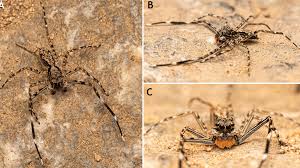
A team of researchers has identified a new species of jumping spiders and named it as Spartaeus karigiri.
- Spartaeus karigiri a jumping spiders belongs the Spartaeinae subfamily in southern India.
- It is for the first time that the genera Spartaeus and Sonoita (specific groups within subfamily), previously known only from Southeast Asia and Africa, have been found in India.
- It is named after Karigiri, or Elephant Hill, in Devarayanadurga, Karnataka, where the spiders were first observed.
- It is known for its intelligent hunting skills and web-invasion tactics
- These species are known for their keen eyesight and unique hunting methods, often deceiving other spiders by mimicking prey.
- With these findings, India’s spider fauna under the Spartaeinae subfamily has grown to 15 species across 10 genera.
- In addition, Sonoita cf. lightfooti, a species previously thought to be confined to Africa, was also identified in Karnataka.
- Despite these advancements, the study pointed out, much of India’s varied terrain remains under-studied, with many more species waiting to be uncovered.
DNA Identification And Air India Boeing 787 Dreamliner crash:

After the Air India Boeing 787 Dreamliner crash in Ahmedabad, authorities are using DNA analysis to identify the remains of those killed in the accident.
- DNA identification is the gold standard for identifying human remains, especially after mass fatality events in which bodies might not be easy to identify otherwise.
- Collection and Storing samples of DNA
- As soon as an individual dies, their DNA begins to degrade.
- DNA survives much better in cold and dry conditions, than when it is hot and humid. Once collected, stored in as cool and dry an environment as possible.
- DNA samples should be frozen at minus 20 degrees Celsius, or, in the case of soft tissues (skin, muscles, etc.), they may be stored in 95% ethanol.
- DNA from soft tissues degrades much faster than that from hard tissues (bones and teeth).
- This is because cells in hard tissues are largely protected from the effects of putrefaction and decomposition.
- Methods to analyse DNA Samples
- Short tandem repeat (STR) analysis: It evaluates short tandem repeats, which are essentially short repeating sequences of DNA. STRs are used for DNA identification as they widely vary between individuals. “After analysing 15 or more of these hyper-variable regions of DNA… the resulting profile can be used to ascertain family relationships with a high degree of confidence.
- Mitochondrial DNA (mtDNA) analysis:
- It is used when nuclear DNA is degraded or unavailable.
- Mitochondrial DNA is found within the cell’s energy-producing organelles known as mitochondria.
- Y chromosome analysis:
- Humans have two types of sex chromosomes, X and Y: biological males typically have one X and one Y chromosome, and biological females typically have two X chromosomes.
- In this method, a panel of STR on Y chromosomes, passed on from father to son, is examined to match the remains of the victim with their male relatives. “This can be useful when close relatives are not available for comparison: any member of the paternal line, including brothers, paternal uncles, and paternal male cousins, may be used for matching,”
- Single Nucleotide Polymorphisms (SNPs) analysis: It is used when the DNA to be analysed is highly degraded. A SNP is a variation in the DNA sequence where a single base — A, C, G, or T — at a specific location differs among people.
137th meeting of the Offshore Security Coordination Committee:

The Indian Coast Guard (ICG) chaired the 137th meeting of the Offshore Security Coordination Committee (OSCC) in New Delhi.
- Offshore Security Coordination Committee was constituted in 1978 to ensure the effective functioning of offshore security arrangements.
- Since then, the committee has contributed effectively in framing policies and providing guidance and resolution to Offshore Defence Area related issues.
- It was constituted to ensure smooth and efficient functioning of offshore security arrangements, and to identify peace-time threats to offshore installations, such as terrorism and sabotage.
- The OSCC develops contingency plans to be implemented by various agencies in respect of offshore security.
- The exponential growth in the offshore Oil and Natural Gas sector has necessitated a manifold increase in the responsibilities of the ICG, in terms of responding to breaches of security, or likely threats, as well as fishing activity in the vicinity of oil platforms that could jeopardize safety.
- Chairman: Director General, ICG
Silver Notice:
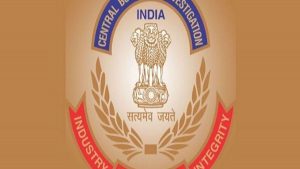
The Central Bureau of Investigation (CBI) successfully got India’s first ‘silver notice’ issued by Interpol, which will enable the CBI to trace proceeds of crime related to the French embassy visa ‘fraud’ case.
- It is the latest addition to Interpol’s suite of colour-coded alerts, designed to help countries track and retrieve criminally obtained assets.
- It allows participating nations to request information on assets linked to criminal activities such as fraud, corruption, drug trafficking, and environmental crimes.
- It aimed at tracing assets laundered across international borders.
- It is part of a pilot project involving 52 countries, including India, was launched following a request from Italy to locate the assets of a senior mafia member.
- The project will run until at least November 2025, with 500 notices available for distribution among the participating countries.
- Countries can use the Silver Notice to request information on various assets, including properties, vehicles, financial accounts, and businesses connected to criminal activities.
- The notice facilitates the identification and location of these assets, enabling further legal action, such as seizure or confiscation, subject to national laws.
- India is a participant in this pilot project and stands to benefit significantly.
- With numerous fugitive economic offenders and a substantial amount of unaccounted black money transferred offshore, the Silver Notice could be instrumental in tracing and recovering these assets.
Zero-Coupon Bonds:

The Power Finance Corporation withdrew zero-coupon bonds issuance due to weak investor demand.
- These are a debt instrument that does not pay periodic interest but is issued at a discount rate to its face value.
- These are also known as discount bonds, are issued at a discount on the bond’s face value and do not pay periodic interest to bondholders.
- They offer payment at face value at maturity so zero-coupon bonds tend to fluctuate in price on the secondary market much more than coupon bonds
- Advantages of Zero Coupon Bonds
- Varied investment horizon:These bonds suit investors with long-term and short-term investment motives.
- Less risky:These bonds are considered less risky than coupon bonds, as the investors have to buy and leave them until maturity.
- Disadvantages of Zero Coupon Bonds
- Period:It is only suited for long-term investment purposes. People with short-term motives cannot invest in these bonds.
- No regular income:The investor does not get a fixed, steady income from such bonds.
Surinsar-Mansar Wildlife Sanctuary:
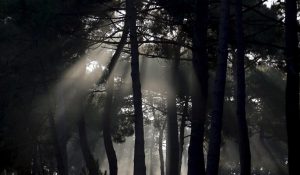
The Jammu and Kashmir Government has constituted a Divisional Level Committee to monitor the Eco-Sensitive Zone around the Surinsar-Mansar Wildlife Sanctuary.
- Surinsar-Mansar Wildlife Sanctuary is located in the Union Territory of Jammu and Kashmir.
- It is named after the twin lakes i.e. Surinsar and Mansar situated almost at two corners of the sanctuary separated by 16 km distance from each other.
- The Sanctuary spreads over three districts vis-à-àvis Jammu, Udhampur and Samba. The major part of the sanctuary falls in the Jammu District.
- Surinsar and Mansar lakes were included in the list of Ramsar sites in 2005.
- The area forms one of the important catchments of river Tawi.
- The topography of the area is hilly with moderate to steep slopes interspersed with small drainage nallas.
- The sanctuary is home of many important species including Blue bull/ Nilgai, Jackal, Indian barking deer, Leopard, Wild boar, Fox.
- The principal species are Pinus rouxburgii, Acacia catechu, Lannea grandi, Mallotus philipenesis, Cassia fistula, Zizyphus jujuba, Dalbergia sissoo, Emblica officinalis.
Agentic AI:

India’s first agentic AI, Kruti, was launched by Krutrim start up.
- Agentic AI is a more advanced GenAI tool.
- This intelligent system goes beyond analysis, acting autonomously on behalf of individuals and organisations to manage complex tasks, make decisions, and solve problems.
- It uses sophisticated reasoning and iterative planning to autonomously solve complex, multi-step problems.
- This system ingests vast amounts of data from multiple data sources and third-party applications to independently analyze challenges, develop strategies and execute tasks.
- It uses dynamic reasoning to interpret user queries, identify goals, and solve problems as they arise.
- It prioritizes taking actions and is integrated with your backend systems and tools to autonomously carry them out.
- It has both short and long-term memory to help contextualize and personalize interactions with customers.
- Kruti Agentic AI can book cabs, pay bills, generate images and support 13 Indian languages using a localised LLM. The platform also includes features such as read-aloud responses and free access to premium AI capabilities like research and image creation. Kruti understands both voice and text input, remembers past interactions and tailors responses in tone, length and language, including 13 Indian languages.
Totapuri Mangoes:
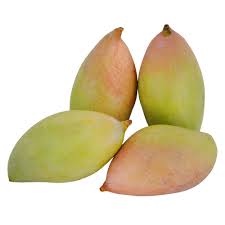
The Andhra Pradesh government has banned the entry of juicy Totapuri mangoes from other states into Chittoor district, a decision that has put it at loggerheads with neighbouring Karnataka.
- Totapuri mangoes are primarily grown in Chittoor district in Andhra Pradesh and in parts of border districts in Karnataka and Tamil Nadu.
- It is known for its elongated shape and distinct parrot beak-like tip (hence “Totapuri”), the variety is valued for its juice and pulp.
- It is indigenous to South India and also known by other names such as Ginimoothi, Sandersha, Banglora.
- Totapuri mangoes are used aplenty in mango drinks manufactured and distributed across the country.
- These mangoes are largely supplied to processing units that extract mango pulp for commercial use, both domestically and internationally.
Ocean Darkening:
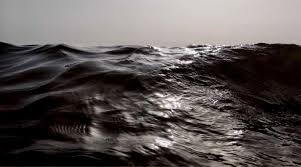
A new study seems to suggest that more than one-fifth of the global ocean has considerably darkened in the last two decades.
- Darkening of the ocean is essentially shrinking of the photic zones or those layers of water where sunlight can pass and induce the process of photosynthesis which is key to all biological processes.
- The photic layers can go down to about 200 meters and they also act as a base for nearly 90 per cent of the world’s marine life.
- This layer is responsible for increasing the productivity of the ocean which also involves regulating climate and even supporting global fisheries or related activities.
- A new study seems to suggest that more than one-fifth of the global ocean has considerably darkened in the last two decades.
- In coastal zones, darkening is usually due to higher runoff of agricultural nutrients, organic matter, and sediments into the ocean with rain which directly promotes algal blooms that block light.
- In the open ocean, the likely causes are changes in plankton dynamics, increase in sea surface temperature and changes in ocean circulation.
- The contraction of photic zones may lead to fundamental shifts in marine ecosystems.
- Those species that use sunlight and moonlight cues to feed, move, hide, and reproduce will be competing for shallower zones.
- This might upset marine food webs that are already working hard against an ecosystem with minimal fishing activity.
Emperor Penguins : Study
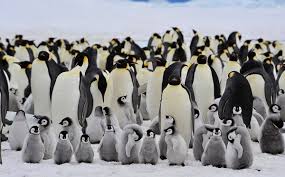
A study revealed that emperor penguins are the iconic species threatened by climate change in Antarctica.
- Emperor penguins are the tallest and heaviest penguin alive today.
- They evolved about one million years ago, and are highly adapted to life in one of Earth’s harshest environments
- Adults are coloured black and white with areas of orange and yellow on the head, neck, and breast.
- They gain and lose weight rapidly during breeding and feeding seasons. On average, females tend to weigh less than males.
- They have two layers of feathers, a good reserve of fat, and proportionally smaller beaks and flippers than other penguins to prevent heat loss.
- They also huddle close together in large groups to keep themselves and each other warm.
- They are capable of diving to depths of approximately 550 metres (1,800 feet) in search of food; they are the world’s deepest-diving birds.
- They breed in the winter.
- Lifespan: 15 to 20 years
- They are found throughout the Antarctic continent and sub-Antarctic islands.
- In breeding months (April to November), emperor penguin colonies are found between 66° and 78° south latitude along the Antarctic coastline.
- It is the most ice-adapted of any penguin species, inhabiting pack ice and surrounding marine areas. They spend their entire lives on Antarctic ice and in its waters.
- Conservation Status: IUCN Red List: Near Threatened.
Jan Vishwas (Amendment of Provisions) Act, 2023:
The Jan Vishwas (Amendment of Provisions) Act, 2023, effective from August 2023, replaces criminal penalties with fines for minor violations, decriminalizing 183 provisions across 42 Central Acts to promote ease of living, ease of doing business, and a trust-based regulatory approach. Jan Vishwas (Amendment of Provisions) Act, 2023 is a significant legislative reform aimed at enhancing the ease of doing business and promoting trust-based regulation in India, covering laws under 19 ministries like environment, agriculture, and corporate affairs.
50 years of National Emergency:
50 years ago, on 12th June 1975, the Allahabad High Court invalidated Indira Gandhi’s 1971 election in Indira Nehru Gandhi v. Shri Raj Narain Case, 1975 leading to the declaration of a national emergency (NE) on 25th June 1975 that continued till March 1977. It is a landmark in India’s constitutional and democratic history, arising from the 1971 general elections, where Prime Minister Indira Gandhi defeated socialist leader Raj Narain, leading to a legal challenge on grounds of electoral malpractices.
IREDA Bags ‘Excellent’ Ratings:
The Indian Renewable Energy Development Agency Ltd. (IREDA) was awarded an ‘Excellent’ rating for its exceptional performance in the Power and NBFC sectors by the Department of Public Enterprises (DPE). IREDA received the ‘Excellent’ rating for the fourth consecutive year, based on its annual performance for FY 2023-24. This recognition highlights IREDA’s leadership in green financing and reaffirms its dedication to nation-building through promoting sustainable energy solutions.IREDA is a Navratna public sector company under MNRE, established in 1987 as a Non-Banking Financial Institution. The DPE, under the Ministry of Finance, formulates policies on CPSEs’ performance, autonomy, and finance, and publishes the Public Enterprises Survey for monitoring. DPE Ratings annually assess CPSEs on MoU targets like profitability and efficiency, grading them from Poor to Excellent to ensure accountability and transparency.
Israel launched Operation Rising Lion:
Israel launched “Operation Rising Lion,” a full-scale military strike on Iran targeting nuclear and missile infrastructure. Hostilities began after Iran’s 1979 Islamic Revolution, which adopted a theocratic and anti-Israel stance.Iran supports Hezbollah (Lebanon), Hamas (Gaza), Houthis (Yemen), and militias in Iraq to encircle Israel without direct confrontation.Israel has previously struck nuclear facilities in Iraq (1981) and Syria (2007); Iran has remained a red line due to complexity. Iran’s threat prompted Sunni Arab nations to normalize ties with Israel, sidelining the Palestine issue temporarily. Iran-backed Hamas’ Gaza offensive intensified regional hostilities, drawing global attention to Iran’s proxy warfare. This comes immediately after the IAEA declared Iran in violation of its nuclear safeguard’s agreement
India’s First Solar Waste Playbook:
The Central Pollution Control Board (CPCB) released draft guidelines on June 4, 2025, for managing solar photovoltaic (PV) waste under the E-Waste (Management) Rules, 2022.Solar waste refers to end-of-life solar PV modules, panels, or cells discarded from use or manufacturing, now classified as CEEW 14 under e-waste rules. -India may generate over 34,600 tonnes of solar waste by 2030 due to accelerated installations across rooftops, floating, and ground-mounted parks.
Y-Break protocol for workplace wellness:
Union Ayush Minister highlighted the Modi government’s success in institutionalizing Yoga globally, with special mention of the Y-Break protocol for workplace wellness.Y-Break is a 5-minute guided Yoga module developed by the Ministry of Ayush to promote well-being and productivity in workplace settings. Aims to help working professionals de-stress, refresh, and refocus during office hours.
India has directed IREL (India) Ltd to suspend its 13-year-old rare earth supply agreement with Japan:
India has directed IREL (India) Ltd to suspend its 13-year-old rare earth supply agreement with Japan, aiming to prioritize domestic needs and reduce dependence on Chinese processing chains.IREL (India) Limited is a Public Sector Undertaking (PSU) under the Department of Atomic Energy, engaged in mining, separation, processing, and extraction of rare earths and atomic minerals. Established In 18 August 1950 (as Indian Rare Earths Limited). Became a full Government of India enterprise in 1963. Headquarters: Mumbai, Maharashtra. Ministry: Administrative control of the Department of Atomic Energy (DAE)
RBI’s LTV Norm Revision to Boost NBFC Gold Loan Growth:
The Reserve Bank of India (RBI) has issued final directions allowing higher loan-to-value (LTV) ratios for gold loans, a move that is expected to benefit non-banking financial companies (NBFCs) that dominate this lending segment. According to Crisil Ratings, this breather in LTV ceiling especially for smaller ticket loans—will provide NBFCs with more flexibility and growth opportunities, while also necessitating improved risk management to guard against potential volatility in gold prices.Crisil Ratings published an analysis of the RBI’s updated final directions on gold loan norms, which include a revised LTV grid allowing up to 85% LTV for loans up to ₹2.5 lakh. These changes are set to become effective from April 1, 2026. The development is relevant as gold loans remain a popular secured lending option in India, particularly among low- to middle-income households, and NBFCs account for a substantial share of the portfolio.




